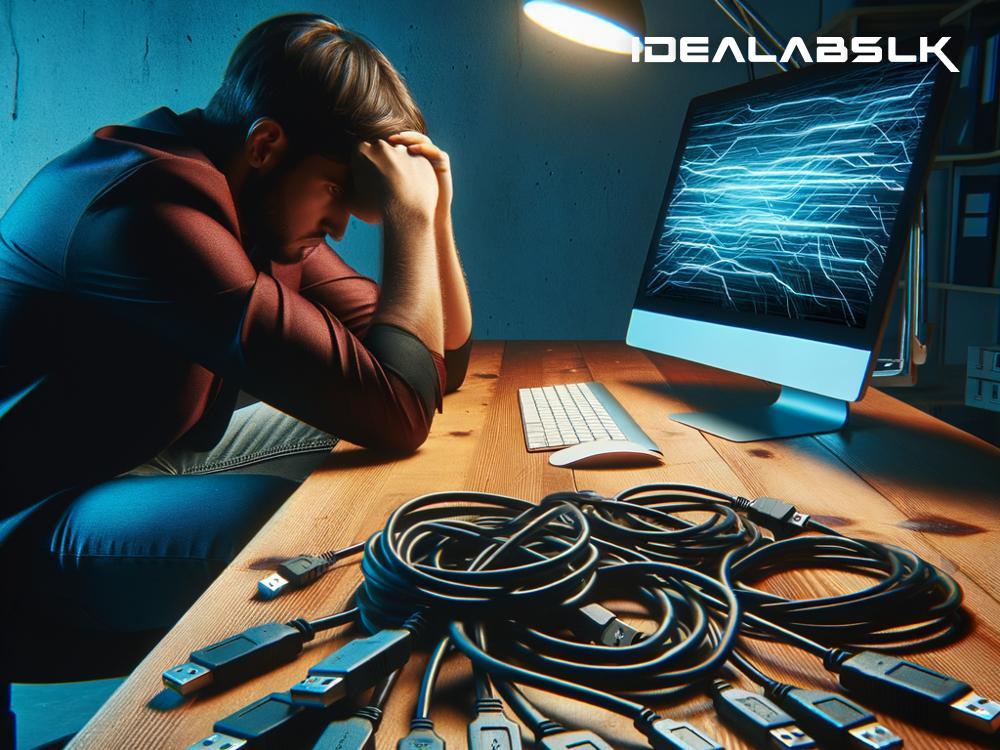Why Your USB Devices Keep Disconnecting and How to Fix It
In today’s digital age, USB devices are like the unsung heroes of our everyday tech lives. From flash drives and external hard disks to mice and keyboards, USB (Universal Serial Bus) devices help us to get things done with ease. But what happens when these reliable little helpers start acting up and disconnecting randomly? It’s frustrating, isn’t it? Let’s dive into why this happens and how you can fix it.
The Culprits Behind the Disconnects
Several factors could cause your USB devices to disconnect unexpectedly. Here are the most common culprits:
1. Faulty or Loose Connections
Sometimes, the simplest explanation is the correct one. A USB device might disconnect if it's not plugged in securely. Over time, the USB port or the device’s connector can become damaged or wear out, leading to a loose connection.
2. Power Management Settings
Your computer’s power management settings are designed to conserve energy. Sometimes, these settings can cause USB ports to power down inadvertently, leading to disconnections.
3. Outdated or Corrupted Drivers
Drivers are software components that allow your operating system to communicate with hardware devices. If the drivers for your USB devices or USB ports are outdated or corrupted, it could cause connectivity issues.
4. Overloading the USB Bus
Each USB port on your computer is part of a bus that has a limited amount of power it can supply. If you’re connecting too many power-hungry devices at once, the bus might be overloaded, causing devices to disconnect.
5. Hardware Issues
Less commonly, the problem could stem from a defect with the USB device itself, the USB port, or even the computer’s motherboard.
Fixing the Connection Issues
Now that we’ve identified why USB devices may keep disconnecting, let’s explore the solutions:
1. Secure the Connections
Start with the basics – ensure that the USB device is plugged in securely. If the connection feels loose, try connecting the device to a different USB port. If the issue is with a USB cable, try using a different cable.
2. Adjust Power Management Settings
For Windows users:
- Open Device Manager (Right-click on the Start button and select it).
- Expand the ‘Universal Serial Bus controllers’ section.
- Right-click on each ‘USB Root Hub’ entry and select ‘Properties’.
- Go to the ‘Power Management’ tab and uncheck ‘Allow the computer to turn off this device to save power’. Click OK.
Repeat these steps for each USB Root Hub entry. This will prevent Windows from powering down USB ports to save energy.
3. Update Your Drivers
Keeping your drivers up-to-date is crucial for preventing many hardware-related issues. You can update your drivers manually through the Device Manager or automatically with driver update software. To update manually:
- Open Device Manager.
- Find your USB device or USB Root Hub in the list, right-click it, and select ‘Update driver’.
- Choose ‘Search automatically for updated driver software’ and follow the prompts.
4. Avoid Overloading the USB Bus
If you’re using multiple USB devices at once, especially those that draw power from the USB port (like external hard drives without separate power sources), try to distribute them across multiple USB ports. Alternatively, use a powered USB hub, which supplies its own power to connected devices and can help prevent overloading the USB bus on your computer.
5. Inspect for Hardware Issues
If none of the above solutions work, there might be a hardware issue. Inspect the USB ports for any visible damage or debris that could be interfering with the connection. If you suspect a more serious problem with the USB port, device, or computer’s motherboard, it might be time to consult a professional technician.
Wrap-Up
USB devices disconnecting randomly can be an annoying hurdle in your daily tech use, but the situation is far from hopeless. By understanding the potential causes and applying the fixes outlined above, you can usually solve the problem quickly and get back to your productive or leisure activities without further disruption.
Remember, tech problems often have simple solutions. So, the next time your USB device decides to take an unexpected break, breathe easy, and tackle the issue step by step.

